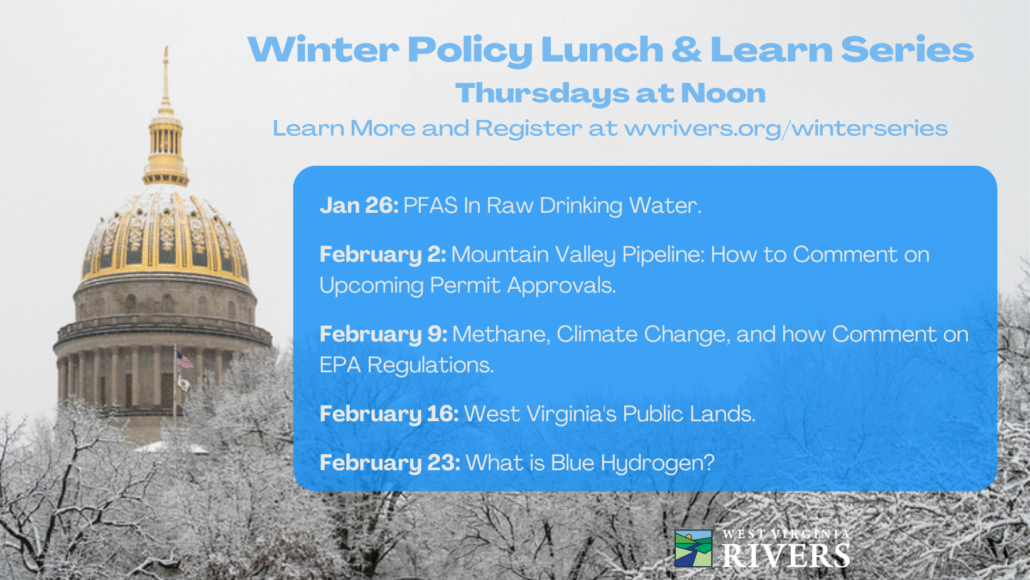Winter Lunch & Learn Webinar Series
Over the next weeks, we’ve scheduled 30-minute Lunch & Learn webinars to share information about important policies where your voice matters. Webinar registrants will received a recording of the webinar. Hope to see you on Zoom!
Jan 26 at 12:00pm: PFAS In Untreated Drinking Water. During this 30-minute lunch and learn, you’ll hear from experts about PFAS contamination in West Virginia’s water and how the West Virginia Legislature can take meaningful action to help protect public and environmental health. Register for the webinar.
February 2 at 12:00pm: Mountain Valley Pipeline How to Comment on Upcoming Permit Approvals. Two permits from federal agencies are pending approval and you have the opportunity to comment on them. Join our webinar on how you can craft and submit your comments. Register for the webinar.
February 8 at 12:00pm: Methane, Climate Change, and an Opportunity to Comment on Proposed EPA Regulations. Learn about a proposed EPA rule to limit methane pollution and how you can comment. Register for the webinar.
February 16 at 12:00pm: Four Facts and Three Concerns about YOUR West Virginia Public Lands. Join us on February 16 at noon for a conversation about the local, state, and national lands we West Virginians own or manage! Join Mike Jones, Public Lands Campaign Coordinator, for some trivia, learn about policy issues, and find out some ways you can get involved to assuring non-motorize recreation on our outstanding, Wild and Wonderful, public lands is available for ALL! Register for the webinar.



